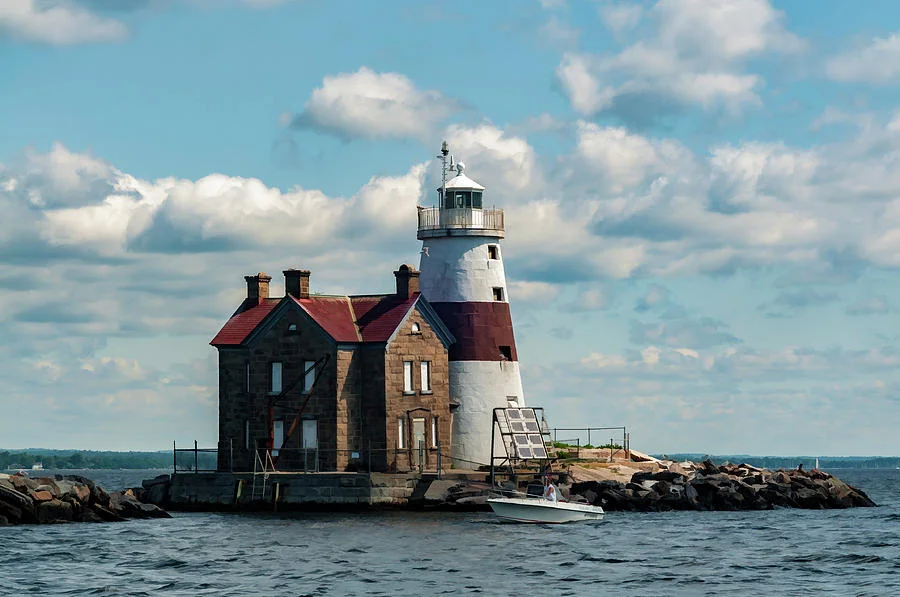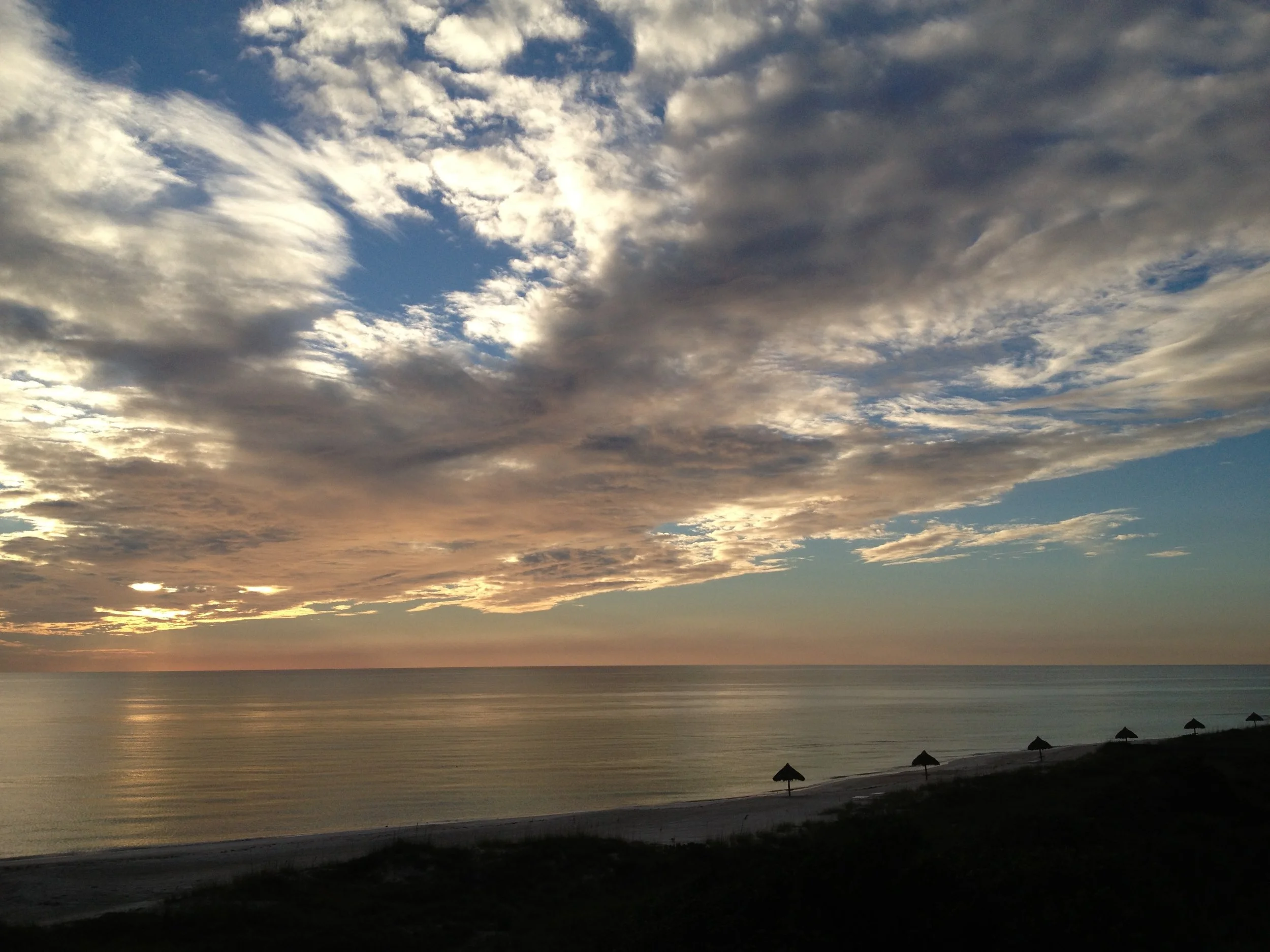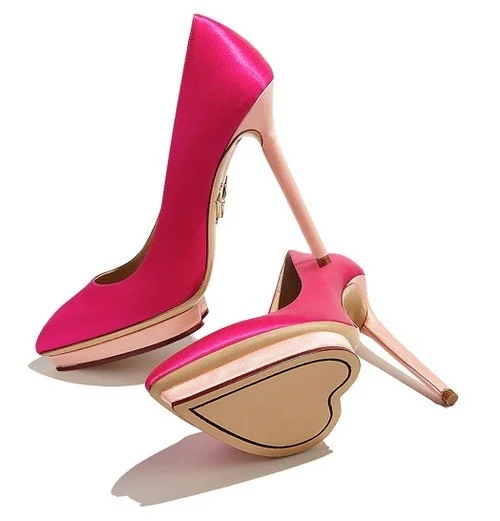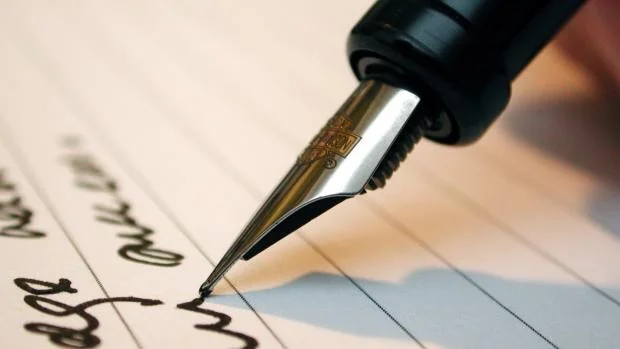Gillian Webster
Writer
i
Silas sank down at the kitchen table and carefully placed the box in front of him. His finger joints shone like iris bulbs, papery skin tan and stretched as though it might tear.
“Ain’t a bomb, old man,” he said to the empty room. “Might as well be,” he replied to himself, before shaking his head. “Si, you’re definitely losin’ it,” he said, staring at the box. “Doubt you’ll outlive this here’s perdiction if you’re done talkin’ to yerself already.”
He tapped his neatly rounded nails on the cherry print oilcloth. Then he reached for the box.
The watch was pretty plain as watches go. The strap was black plastic, which seemed fitting, the black anyhow. The face was round with three rows of numbers. One of those digital screens. LCD, Silas recalled the young man at Sears calling it.
“Tick tock,” he said, touching the shiny face with a tar-brown fingertip.
The watch was called ‘Tikker.’ The colorful print on the box read: ‘The Happiness Watch.’ He’d had to fill out a questionnaire in the store—his age, medical history, lifestyle habits and the like.
Silas snorted. According to this ‘happy’ watch his death was due to occur in 00 years: 03 months: 27 days: 15 hours: 48 minutes: 35, 34, 33 seconds and counting. His life expectancy was shot. What the hell did he need with a death watch? Competition?
Stiffly, he rose from the table with the watch strapped to his desiccated wrist. The backdoor was open and an oblong of sunlight lay splayed across the floor, still as a corpse.
Silas struck a match and fumbled a cigarette between two gnarly fingers.
“Yeah, tick tock indeed,” he said to himself as he took a drag and held it for as long as he could. The smoke burned his lungs and he coughed. The coughing dissolved into laughter when he fought to catch his breath.
“Ought to measure my days in cigarettes,” he cackled to the cactus in the yard.
He looked back down at the watch. Three minutes already gone. “Race you,” he said to the death watch and took another drag on his Marlboro.
ii
Like a Coney Island Circus sideshow, you stare at me. Trapped inside this glass box for hours at a time, I become an object to you. Of ridicule, of your pathetic pickup lines, of your sexual overtures: the flashed genitals I never wished to see. No perk of the job, believe me.
I cope. We don’t report, we stalwart band of female toll takers. Harassment comes with the job. For $12.59 an hour, your dirty mouth’s a perk to some rare souls who crave attention.
Yet I, with window barely cracked and headphones on, grind my way through eight-hour shifts, breathing your traffic fumes as you gawp and offer up obscenities while trying to stroke my hand.
At night, lit by red taillights, I am a whore from Amsterdam behind my Plexiglas screen. You, emboldened by the darkness, try it on, harder than before. I keep my eyes averted, drop filthy coins into your grubby open palm but will not touch. You may be lonely, but I am not your girlfriend or your therapist or your pay-to-play goodtime girl. I am a mom. I am a college girl. I work two jobs to feed my family.
Drive on. Sir. Please.
iii
Hyacinth Brown boarded the ferry at Fordham Street pier on City Island, alone amid an eclectic cargo of mourners. She hid a small corsage of freesia in a plastic box inside her purse, which she clutched to her chest as the boat slipped its mooring. The wind whipped off Long Island Sound and Hyacinth forced her hat lower, fingers crossed the bobby pins holding her steel-gray wig in place would hold for the duration.
Duration, now there was a word. Endurance: another that felt fitting. Fifteen years she’d waited for this day. Fifteen years of asking questions no one wanted to hear, let alone answer. Fifteen years of trying to get the Office of Chief Medical Examiner to track down her dead child. Fifteen years that had led to this.
In the distance, Execution Rocks lighthouse stood winking like a co-conspirator to all this death and dying. There was no saving to be done out here where so many had reached their journey’s end; all hope and dignity dashed on Hart Island’s rocky shore. One million souls and counting.
The boat docked and Hyacinth walked ashore, her whole body trembling. A more bleak landscape she’d never seen. A Department of Corrections truck passed by loaded with Riker’s Island inmates headed to dig more trenches and bury more unclaimed bodies for just fifty cents an hour. In 1869, after the city bought this land, to end up here would have been unfortunate. In 2017, it seemed barbaric, and all for the sin of being poor or alone.
Hyacinth turned away as a crane stacked cheap pine coffins three deep down near the shoreline. The white marker in front of her was all that mattered now. Almost 9,000 babies buried in this mass grave alone. Her Marcus just one of them. She hid the freesia in a clod of dirt. No mementos or flowers were allowed. Just a five-minute stay to pray to whichever God was yours, and then back to the ferry and dry land.
If you judged a people by how they cared for their poor, their sick, their confused, addicted, destitute souls, then this city surely fell short. Hyacinth crossed herself and turned away, certain only that she would be back.
iv
For the fifth morning in a row, Kate woke at 3am. She tossed and turned for an hour. Feet under the covers, feet stuck out in the dark over the side of the bed, too hot, too cold, and what if there were monsters out there, or someone hiding beneath the bed like Jeffrey Dean Morgan in that movie about a female doctor who rents an apartment in DUMBO that’s just too good to be true because it is too good to be true? She lay rigid, staring at the ceiling, listening over the thumping of her own heart for sounds in the dark; a woman cursed, though mostly gifted, with an overactive imagination.
By five she was up, still only half awake, making coffee in her tiny kitchen and thanking God or whoever was responsible for inventing the pod coffee machine; a necessity for those early starts when the manual dexterity required to handle actual beans or ground coffee with a spoon would have been far beyond her capability. She pressed the big silver button to open the machine, popped in the plastic coffee pod, closed the lid with a comforting snick, filled the reservoir with a cup of water and set it to brew. Magic happened inside that machine.
A hiss, a gurgle, and the scent of Arabica began to warm the kitchen. Her daily commute a mere slipper-shod shuffle across the living room floor.
By five fifteen, she was at her desk, nature’s magic already putting on a show. The dawn light purpled the sky until creeping self-awareness turned the world outside a blushing pink. Kate missed this of course since her eyes were trained on her computer screen, on the words she had written yesterday and the day before and the day before that. She read them as she would a stranger’s because to her that’s how they seemed: fresh, newly minted sentences, a story she barely recalled coming from her own fingertips much as you might faintly hold onto the fading remnants of a dream.
This was her work, and yet it never felt like work to her, not a second of it.
By midday, she’d hit two thousand words of a story set a world away from where she now sat, and her stomach was rumbling. She saved and backed up her day’s output and then she shut her laptop down. Seagulls wheeled past the window, skimming the tall dune grasses as they scavenged the churning shoreline for dead crabs or sun-ripened fish spat out by yesterday’s storm. Kate watched them for a moment or two, allowing the real world to come back into focus. She breathed slowly and deeply. The visions lessened, her characters’ voices fading, their concerns losing urgency, shelved for another time.
Kate made herself a turkey salad sandwich. She packed it in waxy red and white paper and then she grabbed a bottle of water and set off for the beach. Behind her, the little office — a simple desk in the bay window of her living room — sat still and silent, awaiting her return the next day when she would surprise herself all over again with the words she typed in her fugue-like state.
It should feel like work but it didn’t, and with the smooth, wet sand beneath her feet, a frothing wave warm as a bath breaking across her toes, Kate was beginning to suspect that she might have the best job in the world.
v
vi
Spark of Madness: Creative Challenge
The Scratchpad №42.5
“You’re only given a little spark of madness. You mustn’t lose it.”
— Robin Williams
The forest floor
Alive, and you
before my eyes
Flashing, flying
So many dying
You lure your prey
And life itself
Extinguished.
A sadness
Speaks to that little spark of madness
Deep within
Us all
Powerless to resist
Your drugging pull
We fall
There is no saving us now
vii
Falling: Creative Challenge
The Scratchpad №41.5
“That wasn’t flying. That was falling with style!”
— Woody, Toy Story
Falling For New York Fashion Week
We poke our heads around the wall, fast, one at a time. We’re like meerkats, or maybe cops tracking perps, cops who have no desire to get their heads blown off. So we peep and then withdraw before anyone in the audience might notice. It’s not like they’re paying attention anyway, all chatting while they stare at their phones as if multitasking is the new black when all they really are is rude.
I spot one guy who is watching everything. He’s cute and sitting in the second row, right behind the VIP spot reserved for Anna and Tom. Alongside, there is space for Kim, Katie, Karlie, Julianne, Naomi, and Cindy.
Am I ever out of my league.
The guy winks at me and waves. Giddy and bold, I wave back because today, today I’m walking in the Tom Ford Show. Turns out I’m not awkward or dorky at all. I am a “quirky one-off” and this is how I roll.
The music starts and my traitorous heart syncs with the beat, leaving me breathless. My abdomen is hollowed out; there’s literally nothing left in there. The inside of my skull feels the same since a stylist braided my hair so tight it’s like a non-surgical facelift.
Did I forget to say that worst of all is the shoes? No patent boyfriend loafers and mannish suit for me. No. These fuchsia pink stilettos would make Manolo Blahnik weep for my curled toes and the calf muscles bunched like rocks beneath this skin-tight navy bodysuit that would divulge a raisin at a hundred yards...had I dared to eat one.
Jecca and Ace go first, trotting down the runway like Lipizzaner stallions. Ciara and Abebe glide along behind, grace in motion. Someone pokes me in the back and like a wind-up toy I follow. Who will catch me if I fall, I wonder, as I make it halfway down then feel the heel of one stiletto and then the other begin to skid.
The room is tilting. Anna Wintour’s bob begins to slide off plane. In the lens of her Jackie O sunglasses, I catch my horrified expression as my knees buckle beneath me. I can do nothing but wait while the floor rushes to greet me and two hundred stylish strangers gasp.
So I focus on the man, the winking stranger in the second row, and pray that nothing breaks.
viii
When the second, much louder knock came, the stranger opened the front door to my parents’ house. I heard her do it while I stood rooted to the linoleum, shaking but curiously passive, as if I had no say in what was about to happen.
Male voices filled the hallway, more than one. These voices must belong to friends of hers, the stranger, I assumed, my heart racing and sinking at the same time. I resigned myself to a fate brought on by my own stupidity, by the good manners my parents had instilled since before I was able to talk. I looked down at the chopping board, the heavy block of blond wood smooth from years of use, safe, familiar. My knuckles blanched white, taut and shiny where my fingers clutched the serrated knife.
I was saved by a blether that warm, spring day: Mrs Wade at number seventy-seven, the neighbourhood gossip, a hedge-hovering chatterbox with eyes of an eagle.
It was a little after nine in the morning when I heard the first knock at the door. Fridays were my late start at uni: one lecture in the afternoon that was hardly worth the bus fare. Geography, a class I was taking to fulfil my first-year study requirements. What use were fluvial planes and tectonic plates when I could have been reading Flaubert or actually learning to use Maslow’s hierarchy of needs? But I was a rule follower, biddable to a ridiculous degree, precisely the personality traits that got me into this mess in the first place.
Ironically, it would be these traits that saved me, too.
I answered the door in my pyjamas, probably still half asleep, to find a young woman in a pink, velour leisure suit standing on my parent’s front steps. She asked if she could use the bathroom. I hesitated, but not for long enough. The instinct to say ‘no’ had my insides twisting at the thought of an awkward refusal. Everything about the situation cried out for that response. Who comes to a stranger’s front door and asks to use the bathroom early in the morning? Not in this neighbourhood. But her timing was perfect: morning drop-off at the local primary school tailing off. The happy sound of children in the playground a backing track to her request. This person, who could have been anywhere from eighteen to thirty, seemed harmless. I conferred on her a narrative: young mother caught short on the school run. It took guts to ask. She was wearing baby pink velour for goodness’ sake. Serial killers and psychopaths don’t dress in pink velour.
Do they?
Against my better judgement, I let her inside. The bathroom was on the half-landing. I pointed it out to her, then hovered in the hall watching her disappear upstairs, a sinking feeling in my gut, instinct telling me that this was wrong, that I’d made a terrible mistake.
Good manners kicked in again; I decided it was rude to stand like a jailer at the bottom of the stairs listening while she used the bathroom.
I retreated to the kitchen where I had been making toast before she arrived. I stood at that wooden chopping board with one ear cocked towards the bathroom above. For the longest time, there was no sound.
Eventually, I heard footsteps on the stairs. No toilet flush, no clanking cistern or running water tank, no door unlocked or even opened. Only later would I find out that she had done none of these normal things; although she had left a ‘deposit’ and an odour behind, flushing seemed beyond her.
With pending relief, I hurried through the house to meet her at the bottom of the stairs, keen to usher her out before any damage could be done and my stupidity found out.
‘Can I use your phone?’ My heart sank. So near yet so far.
This second request chafed at my insides again; an itchy discomfort that called for another ‘no’ but elicited an in-for-a-penny-hung-for-a-sheep response from me. I pointed to the phone, which sat on a shelf near the front door, returning to the kitchen to hover while she made her call. That is when the second, more commanding knock shook the house.
Still in my night clothes and with the serrated bread knife clutched in my hand, I walked through to the hall not knowing whom I’d find.
The woman in pink had let two men inside. Their shadows darkened the doorway. I hovered in my own home as if I was the one who did not belong. Quietly, the men took her outside. No shouting, no drama.
One large policeman escorted her away while the other came inside.
Polite and shaking, I showed him into the room we saved for guests. He dwarfed the sofa, this big Glasgow cop, while I perched on my mother’s armchair in pyjamas and bare feet, 18 years old but feeling like a naughty child. I had let a complete stranger into my parents’ house;
the peril was horrifyingly obvious. I blushed as the story began to unfold. How Mrs Wade, the neighbourhood blether, had watched the stranger approach my front door seconds after that same young woman in pink velour had punched Mrs Wade in the face for refusing access to her bathroom.
My inability to say no had saved me. You were right to give in to her requests, the policeman said. I went to geography that afternoon, but couldn’t say what I learned. By the time I got home, the blether had cornered my mother, giving her chapter and verse on my close call.
Months passed before I learned that I wouldn’t be required to testify in court. The young woman pled guilty; I was off the hook. For years, I was opposed to ‘Care in the Community’ – Scotland’s answer to psychiatric care. Thirty years later, I’d say it’s I who was at fault and Mrs Wade who was brave. That young woman was merely a victim.
This piece was written for the Scottish Book Trust’s “Blether Campaign,” a 1000-word non-fiction challenge.
ix
Elbow Beach, Bermuda - Far Away in Time
Friday, September 5th 2003 is a day I will never forget. At the age of 32, I faced my own mortality head on and found my courage lacking.
Hurricane Fabian had been brewing in the Atlantic for days when we arrived on Bermuda following a week in New York. By September 4th we knew we were in for an almost direct hit, as the eye of the Category 4 hurricane would pass just to the west of the island.
Like sheep, despite staying in a resort hotel, we'd headed to Hamilton, the capital, joining the rush to buy candles, magazines, bottled water and sweets to pass the time, should the power supply fail. The massive cruise liners departed the island, carrying their passengers off to safer, calmer waters. Shops and businesses were boarded up.
Gathered in the smart hotel lobby like refugees for safety, I prayed to God with a fervour not summoned before or since. I begged silently, digging my nails into the palm of my hand to stop from tipping over the edge into hysteria, as the wind levels rose. I bargained with my future, and I have probably failed to fulfil all of the promises I made to God that day, as I pleaded for my life, and that of my partner's, to be spared.
During a hurricane, the noise is the thing that stays with you. Dramatically loud wind, as you would imagine, but accompanied by a high pitched, whining backtrack, that is relentless and exhausting as it carries on for hours and hours. To ease the pressure of the storm, windows were cracked open on the opposite side of the building from the direction of the hurricane. The air was heavy with static.
Leaving my spot in the lobby to visit the bathroom, I slipped on the marble floor as I entered the ladies room. The walls and floor seemed to be running with perspiration in the suffocating humidity. The air conditioning supply had failed, but thankfully the power and water were still on. I returned to my perch and to my praying, unable to concentrate on anything. I read the same page of my book five times and had taken nothing in. Several loud bangs, as flying debris hit the building, shredded my nerves further.
A couple appeared in the lobby, having just visited their room on the 4th floor. We'd been instructed to stay away from upper floors and out of our rooms, as they faced the sea and the direction of the now raging hurricane. However, the glass doors and windows of their room had been sucked out by the force of the storm. Their belongings and small pieces of furniture and lamps were flying around, seemingly impervious to gravity, with the force of the wind. Staff helped them to move the things they'd salvaged to another room, as my anxiety levels rose. Our room was on the same floor, room 414. I imagined our things; clothes newly purchased in New York, shoes, cameras, jewellery, being sucked out of drawers and wardrobes where we had secured them as we prepared to leave that morning. We had taped large black crosses from corner to corner on the veranda doors in case the glass should shatter and had packed the bottom edges of these sea-facing balcony doors with towels, as instructed by the hotel, to prevent water seeping into the room as the storm forced hundreds of gallons of sea water and rain directly towards the building. James offered to check on our room and despite my fear I felt the need to go with him to make sure that if something happened to him I wouldn't be left behind alone.
So we snuck upstairs along deserted corridors. Our room was fine, to our great relief, and we began hurriedly emptying our things into suitcases and then stashed them in the wardrobes, hoping this would keep them safe should the worst happen. We had filled the bath with water that morning, as requested by the staff, in case the water supply should be cut off. To my horror and fascination, the water was now swilling back and forth, just as it would on a ship, and the solid marble floor in the bathroom seemed to be moving. The windows flexed in and out alarmingly. My head ached from the extremely low barometric pressure and I craved fresh air.
Back in the lobby, the wind reached its height. Large glass street lamps had blown off down the driveway and where guests had made foolhardy forays outside earlier to take photographs, four men now battled to hold the doors of the hotel closed.
Fabian came within 50 miles of the West of Bermuda, about as close to a direct hit as you can get, I learned. Wind gusts increased by the hour until, at about 3pm, with sustained winds of 120 mph and gusts up to 164 mph, the main radio tower at the island's central radio station toppled.
Fabian moved away from Bermuda by the evening of September 5th, and rapidly headed northward into the cooler waters of the North Atlantic, as we fell into an uneasy, exhausted sleep. The following morning dawned beautifully calm and clear, but a scene of devastation faced us at breakfast.
Four people, including two police officers, died when a storm surge engulfed the causeway to the airport. Fabian caused $300 million of damage and it took several days for the airport to reopen. Puddles and debris remained all around the check-in hall when we flew out 4 days later.
Due to the damage and deaths on Bermuda, the name Fabian was retired in spring 2004 and will never again be used for an Atlantic hurricane. The World Meteorological Organization ultimately replaced Fabian with Fred, to be on the list for the 2009 season.
I remain eternally grateful for the kindness and professionalism of the hotel staff that day and I am certain God was definitely on our side too.
This piece was first published in 2014 for the Days Like This project run by BBC Radio Scotland and Scottish Book Trust. We asked you to tell us about an important day in your life - because we all have days we'll never forget.
x
We write not for glory or acclaim,
But because not to pen those words that roll around our shrieking brains,
would be hell.
So that blank space calls to me.
It lures me with its perfect unsullied,
Satisfying whiteness.
A witness.
Please impress, it says,
With your muddy thoughts and your overflowing emotions.
Lay them on me so that you can sleep at night,
And I will hold them tight.
Then, together, let us share,
With the world,
If you dare.









